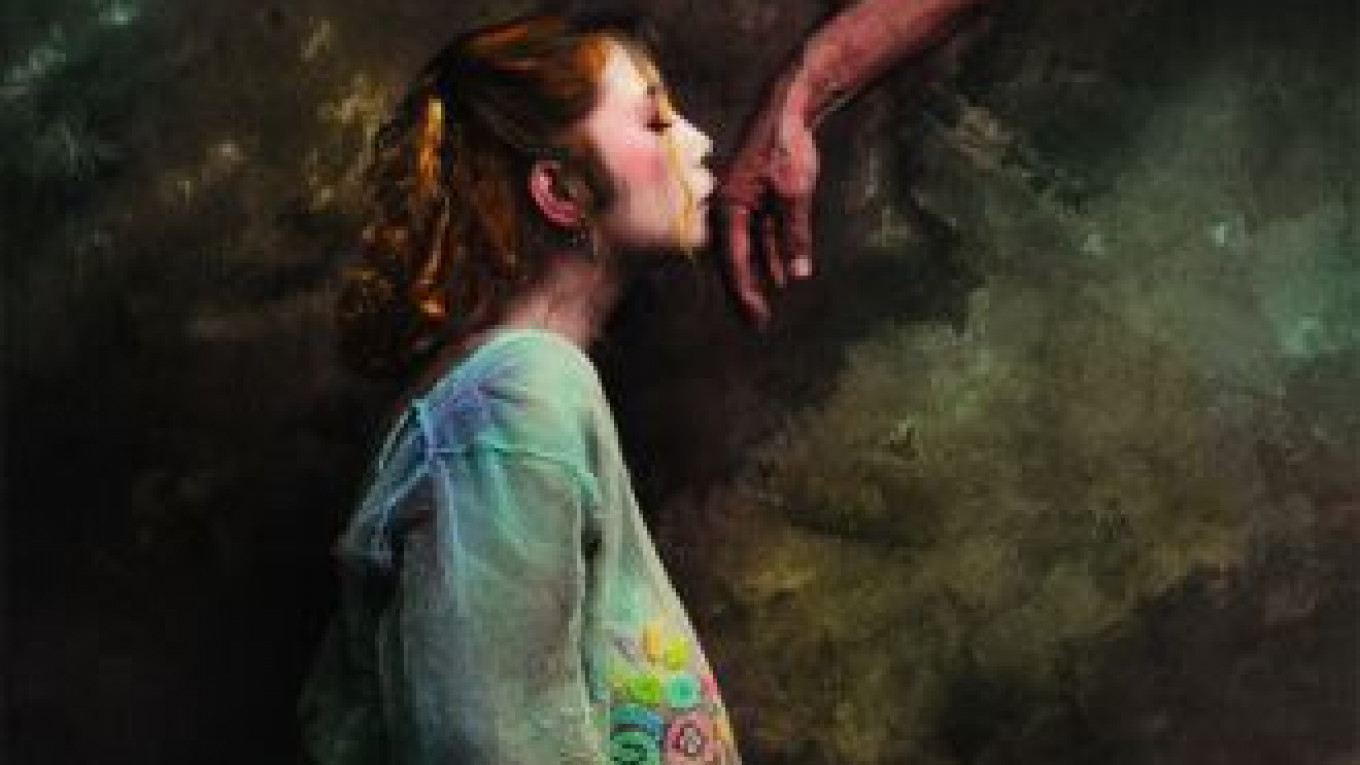For those unfamiliar with Czech photographer Jan Saudek, the title of the ongoing retrospective of his works at the Classical Photography Gallery aptly sets the tone. "Life, Love, Death and Other Trifles" both meets and subverts viewer expectations as we enter an alternate reality of empowerment, repression, attraction and revulsion.
"The name is outrageous, like Saudek himself," gallery curator Mark Kobert said about the exhibit.
Outrageous indeed, and the photographer's larger-than-life personality is felt throughout, whether in the signature scrawled in black marker pen on a white wall of the exhibition space, or in the sound of his voice emanating from a documentary film about his life, playing on loop in the background.
The overriding impression is that we have entered into his unsettling world of opposites.
Jan Saudek’s photographs are featured in a Moscow exhibit, and are so shocking that the hosting gallery had to exclude two of them.
Opposites certainly characterize Saudek's work. Infused with iridescent color and eerie shadows, depicting growth and decay, beauty and distortion, strength and weakness, these are works whose oppositions are further reflected in the many outspoken critical responses to them.
"His works certainly don't leave people indifferent." Kobert said. "His photos are either adored or absolutely hated. But it's impossible to ignore them."
Although Saudek is far from ignored on a world stage today, his photography started out as a clandestine hobby hidden in a basement, with a large portion of his early work created under censorship. His archives consequently bear the scars of KGB seizures and ownership disputes with former wife and muse Sara Saudkova, such that certain works can no longer be printed because the negatives have been lost.
And according to Kobert, the controversy with which Saudek is synonymous is particularly topical in Russia itself, "where society is heading rapidly into an abyss of intolerance and medieval obscurantism."
But in the end, even the Classical Photography Gallery was forced to moderate the final cut.
"Jan sent a list of works that he wanted to show. I must admit, we had to remove two photographs from it to avoid direct accusations of neglecting public morals. To put it mildly," Kobert said.
Indeed, the shocking nature of Saudek's photography cannot be ignored. Often subversive and nearly always explicit, his works have been labelled by some critics as "soft porn," though this tag is reductive and discounts their intricate juxtapositions and subtexts, many of which incorporate repeated or slightly altered motifs and settings to deal with eternal themes of human individuality. And for Kobert, it is important that viewers are confronted with Saudek's uncomfortable, unexpected questions, because of the personal response it demands.
"I think that if people have questions after seeing the exhibition, it means they are trying to comprehend it, trying to see the world from a different angle. In an era of mindless consumption, this can only be a good thing," he said.
Perhaps this is precisely why Saudek's works are so controversial: not because of nudity and provocative scenes, but because they disarm and empower the viewer all at once. And in Saudek's land of opposites this, too, can only be a good thing.
"Life, Love, Death and Other Trifles" (Zhizn, Lyubov, Smert i Drugiye Pustyaki) runs until May 12 at the Classical Photography Gallery, located at 23/1 Savvinskaya Naberezhnaya. Tel: + 7 495-510-7714. www.classic-gallery.ru
Contact the author at artsreporter@imedia.ru
A Message from The Moscow Times:
Dear readers,
We are facing unprecedented challenges. Russia's Prosecutor General's Office has designated The Moscow Times as an "undesirable" organization, criminalizing our work and putting our staff at risk of prosecution. This follows our earlier unjust labeling as a "foreign agent."
These actions are direct attempts to silence independent journalism in Russia. The authorities claim our work "discredits the decisions of the Russian leadership." We see things differently: we strive to provide accurate, unbiased reporting on Russia.
We, the journalists of The Moscow Times, refuse to be silenced. But to continue our work, we need your help.
Your support, no matter how small, makes a world of difference. If you can, please support us monthly starting from just $2. It's quick to set up, and every contribution makes a significant impact.
By supporting The Moscow Times, you're defending open, independent journalism in the face of repression. Thank you for standing with us.
Remind me later.


